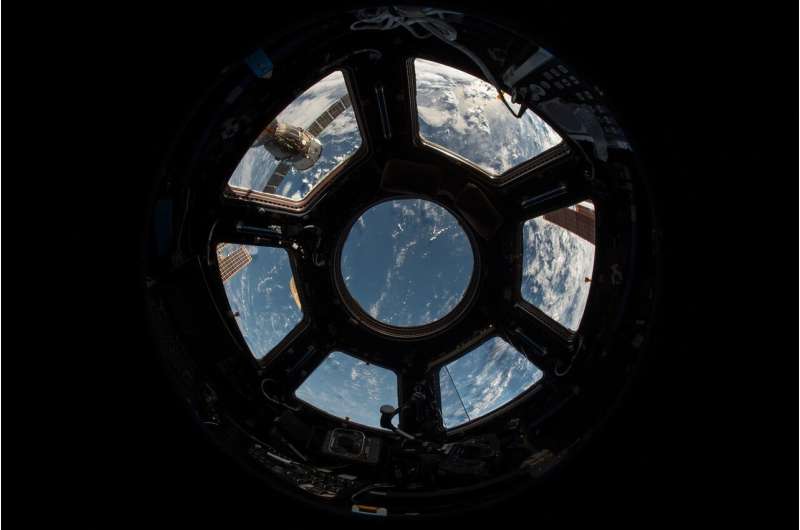This article has been reviewed according to Science X's editorial process and policies. Editors have highlighted the following attributes while ensuring the content's credibility:
fact-checked
reputable news agency
proofread
Russia postpones launch of rescue ship to space station

Russia said Monday it had delayed the launch of a rescue ship supposed to bring home three astronauts whose planned return vehicle was damaged by a tiny meteoroid.
The mission's postponement until March came after the Russian space agency reported a new problem at the weekend, saying a supply ship docked at the International Space Station (ISS) had leaked coolant.
"A decision has been taken to postpone the launch of the Soyuz MS-23 spacecraft in an unmanned mode until March 2023," the Russian space agency said.
"We stress that nothing threatens the life and health of the crew," it added.
Russia had said in early January it would send an empty spacecraft to the ISS on February 20 to bring back the three astronauts.
MS-22 flew Russian cosmonauts Dmitry Petelin and Sergei Prokopyev and NASA astronaut Frank Rubio to the ISS in September after taking off from the Russian-operated Baikonur Cosmodrome in Kazakhstan.
They were scheduled to return home in the same spacecraft in March.
But MS-22 began leaking coolant in mid-December after being hit by what US and Russian space officials believe was a tiny space rock.
At the weekend the Russian space agency also said the Progress MS-21, a Russian supply ship docked at the ISS, had leaked coolant.
The space agency said on Monday that a commission was looking to establish what had happened to the Progress cargo ship.
"Until the cause of the emergency situation is determined, a decision was made to postpone the launch of the Soyuz MS-23 spacecraft," Roscosmos said.
In recent years Russia's space programme has been beset by a litany of problems which have led to the loss of satellites and vehicles.
The ISS was launched in 1998 at a time of increased US-Russia cooperation following the Cold War "Space Race."
© 2023 AFP





















